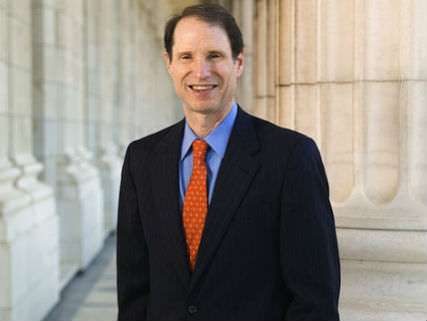Does the NSA Have Cellphone Data Tracking Your Movements?

For years Sens. Ron Wyden (D-Ore.) and Mark Udall (D-Colo.), both members of the Senate Intelligence Committee, have been warning us about secret legal interpretations underlying surveillance activities of a sort that would shock most Americans. Prior to last week, because Wyden and Udall felt constrained not to reveal classified information, all we knew for sure was that the interpretations involved Section 215 of the PATRIOT Act, which authorizes the government to demand "any tangible things" it deems relevant to "an investigation to protect against international terrorism." Reason Contributing Editor Julian Sanchez, a privacy specialist at the Cato Institute, argued back in May 2011 that the "secret law" troubling Wyden and Udall "is probably about location tracking." After The Guardian broke the story of the Section 215 order that the National Security Agency (NSA) used to obtain telephone records from Verizon, Wyden and Udall said this was the sort of thing they had in mind. But that does not mean the information gathered by the NSA under Section 215 is limited to numbers dialed, date and time of calls, and length of conversations—the details usually mentioned in reports on the program. As Washington Post blogger Timothy B. Lee notes, it looks like the NSA is gathering location data as well:
The order may only pertain to Verizon's wired telephony business, as Verizon Wireless is technically a separate subsidiary. But the order includes hints that the NSA is also collecting information from cellular customers. In addition to phone numbers and call times, the order seeks information about the specific cell phone tower the customer used to connect to the network during each call.
It wouldn't make much sense to request that information from a traditional wired telephone company. So its inclusion suggests either that the order includes Verizon Wireless, or that it's boilerplate that is also being sent to wireless companies….
Cellphones make calls using the closest tower. So if the NSA knows you made a call using a specific tower, they can safely assume you were near that tower at the time of the call. The accuracy of this information varies. In urban areas, tower information can pin down your location to a specific city block or even a specific building. In rural areas, it might only identify your location within a mile or two.
The Verizon order covered all calls, domestic and international, since 2006. If wireless carriers have received similar orders that include demands for cellphone tower information, the NSA could have a database tracking the movements of every American with a mobile phone. But remember: The NSA does not "collect any type of data at all on millions or hundreds of millions of Americans."
For more on cellphone tracking, see my 2012 column "Is That a Spy in Your Pocket?" and Ron Bailey's 2013 feature story "Your Cellphone Is Spying on You."


Show Comments (8)